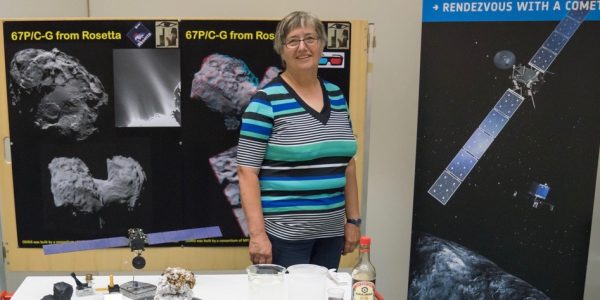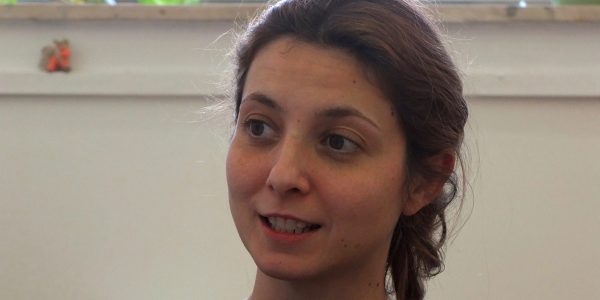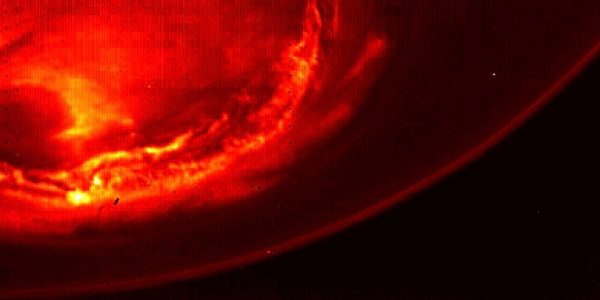News
“It was the most exciting mission”
On Friday 30 September 2016 the European spacecraft Rosetta will crash into the comet Churyumov-Gerasimenko. Aboard the Rosetta spacecraft is the instrument ROSINA, which was developed by Physics Professor Kathrin Altwegg and her team at the University of Bern. PlanetS: You will lose an instrument that you have grown very fond of – it has […]
Continue ReadingUnderstanding Giant Planet Formation
Ravit Helled occupies an office in the buildings of the Irchel campus, University of Zurich, Y11 building. She is with her son who is just a few weeks old, “although I could have been in the event organized by NASA for the arrival of Juno at Jupiter I could not go there, since I was […]
Continue ReadingAmazing Images of Jupiter
According to Scott Bolton, principal investigator of Juno from the Southwest Research Institute in San Antonio the north pole of Jupiter looks like nothing seen or imagined before. It’s bluer in color up there than other parts of the planet, and there are a lot of storms. Clouds have shadows, possibly indicating that the clouds are at a higher altitude […]
Continue ReadingArriving at Mars
On 19 October 2016, the spacecraft Trace Gas Orbiter (TGO) of the European ExoMars mission will manoeuvre into Mars orbit. On board is a camera built at the University of Bern, the Colour and Stereo Surface Imaging System CaSSIS. In the video Principal Investigator Nicolas Thomas explains what will happen after the arrival at Mars. […]
Continue ReadingSwiss Government in the Clean Room
To kick of their annual “school trip” in summer 2016 all seven members of the Swiss Federal Council visited the University of Bern. The professors Willy Benz, Kathrin Altwegg and Nicolas Thomas presented their space projects: the space telescope CHEOPS, the Rosetta spectrometer ROSINA-RTOF and the mars camera CaSSIS. For entering the CHEOPS laboratory the […]
Continue ReadingTest of the CHEOPS CCD
This interactive page describes the different elements of the optical bench to test and calibrate the entire optics of the CHEOPS space telescope including the CCD detector. The photo was taken in the clean room of the Physics Institute of the University of Bern and the diagram shows the optical path of the installation. To […]
Continue ReadingThe sky is full of moons
On the 5th of September 2016, the Minor Planet Center reported that a small moon is in orbit around asteroid (6016) 1991 PA11. This newly discovered companion is actually just one of many such objects. By Adrien Coffinet The Moon, with a capital “M”, has since long ago been known to orbit the Earth. However, we had […]
Continue ReadingPrepare for Lift-Off with the Space Transformer
On 24 November 2016 the completely redesigned permanent space exhibition at the Museum of Transport in Switzerland will open its doors to the public. “Space – The Exhibition” is designed so that visitors can experience a predetermined course through various areas and adventure experiences relating to the theme Space and Space Exploration. The exhibition was developed […]
Continue Reading“As a child I wanted to be an astronaut”
Hilke Schlichting, Professor at MIT/UCLA, came to NCCR PlanetS as Visiting Scholar for two weeks in September 2016. The Visiting Scholars’ programme invites prominent senior scientists in the field to give scientific seminars and, in addition, to share their experience with young researchers at PlanetS. Hilke Schlichting’s research interests span all aspects of planet formation […]
Continue ReadingEarth twin planet found in the habitable zone of the nearest star to the sun.
A team of astronomers has discovered a planet similar to Earth orbiting Proxima Centauri in just over 11 days. This planet is at a distance from its star that would allow water to remain in its liquid state. Proxima Centauri is a red dwarf located 4 light years from Earth and is one of the […]
Continue Reading










